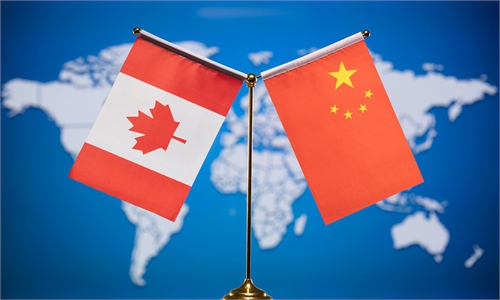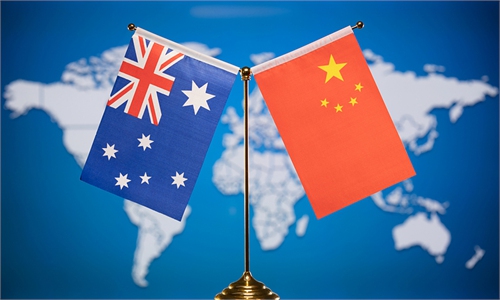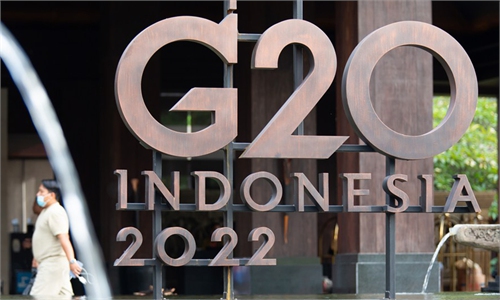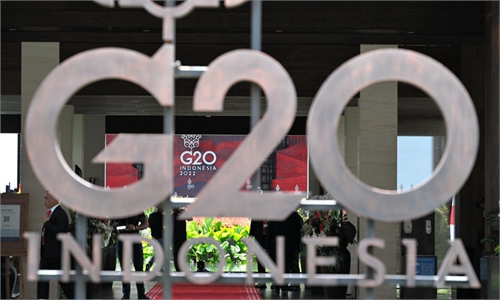China-Indonesia relations embark on a speedy ride
Xi, Widodo inspect signature BRI project Jakarta-Bandung HSR
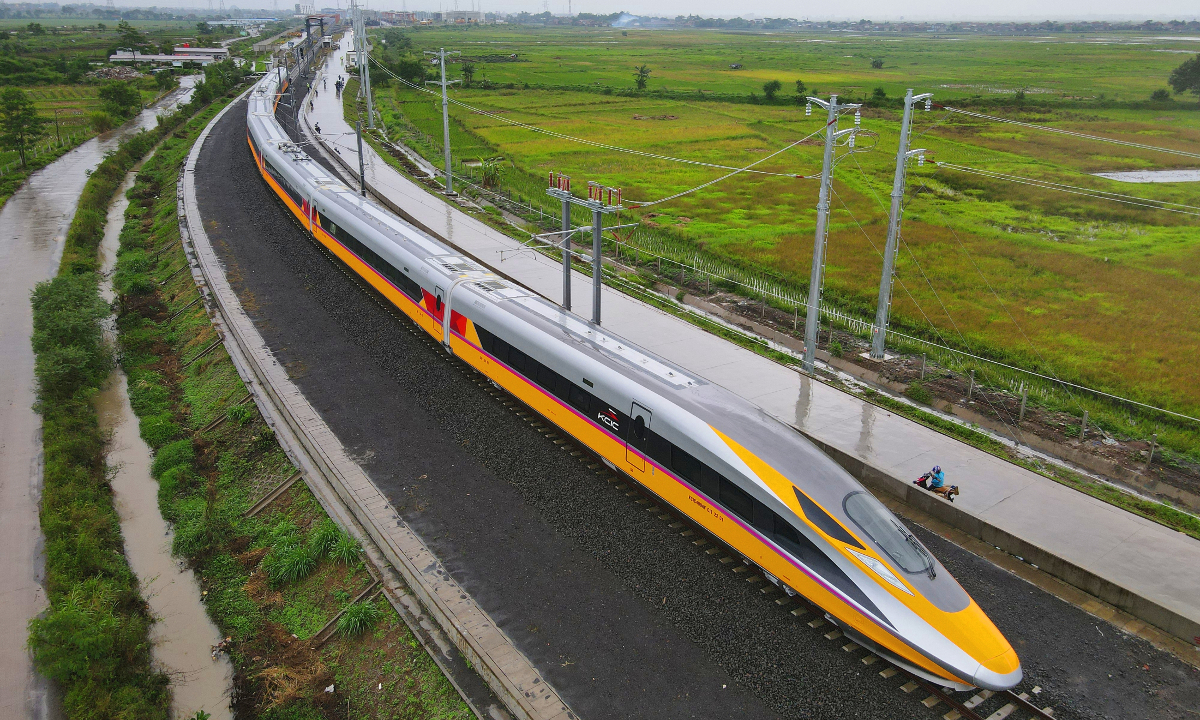
Photo: Coutesy of China Railway
With a highly-anticipated meeting between Chinese President Xi Jinping and Indonesian President Joko Widodo on the sidelines of the G20 summit in Bali on Wednesday, the two countries' vision to build a community with a shared future is set to embark on a speedy ride, heading toward a new era of Belt and Road Initiative (BRI) cooperation between China and Indonesia - also an important node where Xi in 2013 proposed the 21st Century Maritime Silk Road.
Before the meeting, Xi and Widodo inspected via video link the inauguration of trial operation for the Jakarta-Bandung High-speed Railway (HSR), the first high-speed rail line in Southeast Asia and a brand-new BRI "calling card" that demonstrates China's readiness to share its development dividends with the world, observer said.
As the world is facing unprecedented division and discord, the exchange between Xi and Widodo is an embodiment of this year's G20 summit task: to foster pragmatic cooperation such as the Jakarta-Bandung HSR rather than making the US-led geopolitical gambit mindset further jolt the world apart.
The launch of the railway and the bilateral meeting between the Chinese and Indonesian leaders will further elevate bilateral relations, analysts said. They expect the joint pledges to build a community with a shared future could lead to more cooperation between the two nations in broad areas such as the economy, security and global governance, injecting much-needed stability into Asia's development and contributing to the strengthening of developing nations in the global arena.
Shared future
Xi met Widodo in Bali on Wednesday evening. They reached an important consensus on building a China-Indonesia community with a shared future, agreeing to build a new pattern of high-level cooperation next year as 2023 marks the 10th anniversary of lifting bilateral ties to comprehensive strategic partnership, state broadcaster CCTV reported.
Xi congratulated Indonesia for successfully hosting the G20 summit. Xi also pointed out that China-Indonesia cooperation has achieved substantial achievements, which not only benefited the people of the two countries, but also exerted positive influence at both regional and global levels.
"It is a timely meeting to consolidate the commitments on building a community of a shared future and it will inject new dynamics into international cooperation. As two of the world's largest developing and emerging countries, the win-win, equal footing cooperation between China and Indonesia creates a paradigm of a joint building of a new pattern of relations," Xu Liping, director of the Center for Southeast Asian Studies at the Chinese Academy of Social Sciences, told the Global Times on Wednesday.
In July, Widodo became the first foreign head of state to visit China after the Beijing 2022 Winter Olympic Games. Both sides vowed to foster a community of a shared future, which would expand cooperation in "four pillar" areas from infrastructure to health to green development.
China and Indonesia are both staunch advocates of multilateralism, and share common interests, similar development stages and consensus in multiple areas, which are the basis for advancing closer cooperation, Xu said.
As such, anchoring the goal of building a community of a shared future, the two sides could strengthen cooperation in regional security and other global agenda such as climate, transnational crime, bolstering the voices of developing countries and contributing Asia wisdom and strengthen global governance.
President Xi has visited Indonesia twice, and proposed the 21st Century Maritime Silk Road during the 2013 visit, since when the nation has grown into a pilot demonstration zone of BRI cooperation. China is also the second-largest source of investment in Indonesia, playing a constructive role in its economic elevation.
Xi pointed out that China is willing to continue to deepen the connection of BRI with Indonesia's Global Maritime Fulcrum, and promote the early completion and operation of the Jakarta-Bandung HSR.
Since upgrading bilateral relations to the comprehensive strategic partnership level in 2013, China has become the largest trading partner of Indonesia for consecutive nine years. Last year, bilateral trade volume surpassed $100 billion, up more than 58 percent year-on-year, leading the gains among ASEAN members.
"China is happy to see the rise of emerging economies like Indonesia, which gives positive energy for today's international order," Xu said. The joint efforts of China and Indonesia will bring regional integration to a new height, which is conducive to Asian development and recovery amid the global economic downturn, he said.
On Wednesday, the two leaders jointly witnessed the signing of the action plan for strengthening the comprehensive strategic partnership (2022-2026), the joint construction of BRI cooperation plan, and cooperation documents in the fields of economic and trade cooperation, digital economy, vocational education and medicinal plants.
A BRI 'calling card'
At the beginning of the meeting, the two leaders inspected the trial operation of the Jakarta-Bandung High Speed Railway via video and watched videos showing the achievements of the bilateral cooperation.
With both leaders giving instruction to commerce the test, a tailored-made high-speed comprehensive test train slowly rolled out from the Tegalluar station, and received warm applause. It marked a special moment for Chinese engineers and business representatives who have been working on the project for several years.
"Being able to see the Jakarta-Bandung High Speed Railway on display at the G20, I am very excited," Wang Kun, general manager of China Railway Group's Management Department of Jakarta-Bandung HSR Project, told the Global Times, noting that the seven years' dedication they put into a project that lives up to the highest Chinese railway standards and went through many difficulties such as the COVID-19 pandemic is now "paying off."
Many Indonesians are elated as well. "The Jakarta-Bandung High Speed Railway does not only accelerate economic growth for people living around the route, but also contributes to a better transportation system in Indonesia," a resident of Indonesian capital Jakarta named Veronika told the Global Times.
The high-speed line connects Indonesia's capital Jakarta and its fourth-largest city Bandung, capital of West Java province, one of the world's most heavily populated regions, and travels through one of the largest industrial zones in Indonesia. Covering a potential population of 40 million, it will cut travel time between the two cities from the current three hours to about 40 minutes.
"This is a new mode of transportation in Indonesia built as solution for traffic jams in [the] Jakarta to Bandung route," Veronika said, noting that she hopes the project will be just part of the rapidly expanding cooperation in a series of fields.
To date, about 90 percent of the project's investment has been completed, and it is expected the railway will open on June 30, 2023. At the initial stage, the designed capacity is about 30,000 passengers a day, which will expand to 60,000 in five years, Xin Xuezhong, chief of Jakarta-Bandung HSR's consortium of contractors, told the Global Times.
"The HSR is conspicuously a new 'calling card' for BRI high-quality cooperation, and putting the project into operation in a country in which the initial shape of the BRI was mapped out carries significant weight. It demonstrates the BRI is gaining momentum, reverberating across the world and China is sharing its development dividends to the world," Xu said.
Despite a slew of fear-mongering campaigns the West launched against China, ranging from "debt trap" claims to the "China threat theory," with substantial benefits, the HSR stands in contrast to little progress made by much ballyhooed infrastructure initiatives, the Partnership for Global Infrastructure and Investment and Global Gateway, touted by the G7 and EU, respectively.
Zeng Weixian, a senior engineer of the China Railway No.4 Engineering Group Co, told the Global Times that the railway will immediately generate a "revolutionary effect" on the local economy and people's livelihoods, and more benefits will be reaped in the long term. Chinese firms have reportedly trained more than 10,000 local employees and it is estimated the project will create about 30,000 local jobs, in addition to driving an "HSR economic corridor" along its route.
The launch of the trial operation on the sidelines of the G20 Leaders' Summit is of great significance on multiple levels, given several breakthroughs seen in the project.
Indonesia's Minister of Transportation Budi KaryaSumadi said in October that he takes pride that Indonesia will become the first country in ASEAN to have a high-speed railway.
The project also marks the first time that China's high-speed railway is built abroad with systematic and whole-of-supply chains. Zeng said that compared with other railway technology providers, the offering by Chinese companies was the most cost-effective compared with other bidders, with shorter construction period and a more stable and comfortable riding experience.
Showcasing the HSR's trial run at the G20 summit, whose participants include both developed and developing nations that jointly account for 85 percent of global GDP, not only underscores China's rail manufacturing prowess but more importantly, it will exemplify Chinese modernization which developing countries could draw upon, Xu stressed.
"A fundamental step of the Chinese modernization involves addressing infrastructure bottlenecks first. The speedy ride brought by the train will offer developing countries, particularly in ASEAN and Africa, valuable lessons in this regard," Xu explained.
In the ASEAN sphere, the Jakarta-Bandung HSR, together with other key BRI projects such as China-Laos railway and China-Thailand railway will be constructed into a backbone of ASEAN 2025 infrastructure connectivity plan, further facilitating the regional integration momentum underpinned by the implementation of RCEP at the beginning of this year.


